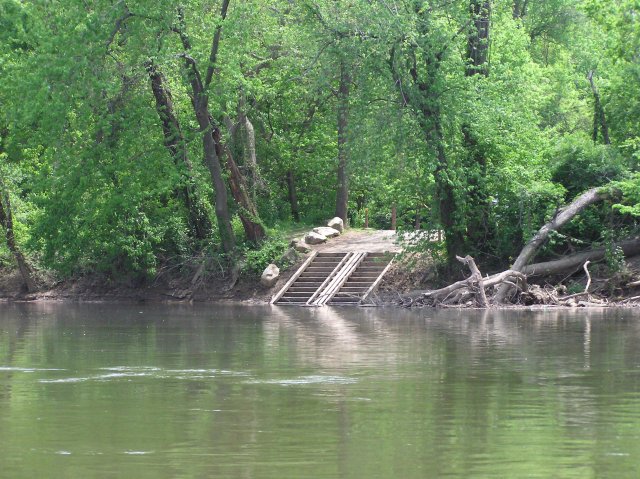I’ll admit that when I signed up for Earth Lodge I didn’t know there was a community-based learning aspect. Now I mind community service; yay helping people. But I won’t deny that I found the scheduling, transport and other logistics irritating. At the end of the day, however, I got to spend two nice days outside bonding with some fellow lodgers, and the world got a little back from it. For my first four hours I did a self-directed cleanup with Sam at Huguenot Flatwaters, and the second session was helping out at the William Byrd Community House.
My first volunteer experience had obvious connections to class. I found that picking up trash helped me remember class concepts. I climbed down the steep riparian zone to get to the water. There were a lot of leaves and other debris in the water, a side effect of increased impervious surfaces. All the animals I heard or saw evidence of were just a fraction of the incredible biodiversity found in this ecotone. The links were obvious, and the impact of our service was clear.

Oooh, Take a look at that Riparian Zone
On the other hand, when I went to the farmlet I didn’t really see how it related to our class. After all, I was raking leaves the whole time I was there. There was one part of the trip that made it all connect; before we started working, we sat in the library and were introduced to what William Byrd Community House does. Having their children grow their food, cook it, and eat it fosters the farm to table connection. Coming from a rural area, it never quite occurred to me how disconnected most people are from their food. I got my corn from a stand on the side of the road, but many young children living in Richmond probably have no idea what a corn plant looks like.
While the farm-to-table connection probably has very little to do with the James River, the concepts are the same. Isn’t our whole problem stemming from the fact that people just don’t know anything about the environment they live in? It is the reason why so many people carelessly leave their beer cans laying around Huguenot Flatwaters, and the reason why kids don’t know where their food comes from. But in every case all we really need is education. This is what we’re really getting out of this class, I think. The class is on the geography of the James River, but what’s important to remember is not that the James stems from the Jackson and Cowpasture Rivers. What we need to remember is why the James is important to the environment, how it is threatened, and how we can save it. We’re going back to the awareness-appraisal model from foverever ago, because once you learn about something, then you care.
“In the end we will conserve only what we love; we will love only what we understand; and we will understand only what we have been taught.”
― Baba Dioum

Well done making the link to our connectivity theme from the William Byrd outing. That is a great point. And I love the quote!